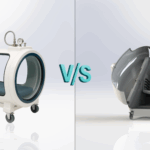Glaucoma is an eye condition where the optic nerve of the eye is damaged and worsens over time. This is often associated with pressure building up inside the eye.
There are no specific early stage symptoms of Glaucoma, thus it is very important to see your optometrist at least once a year. If Glaucoma is diagnosed in its early stage you are less likely to suffer any long term damage.
Who is at risk of developing Glaucoma?
- Diabetics
- Individuals with a family history of Glaucoma
- Individuals who suffer from frequent migraines
- Individuals who are short sighted (myopia)
- Individuals who are long sighted (hyperopia)
- Individuals who have suffered an eye injury
- Individuals suffering from high blood pressure
- Individuals who are using or who have used steroids (cortisone drugs)
There are different types of Glaucoma. Low- or normal-tension glaucoma is caused when nerve damage within the eye has taken place. Acute or angle-closure glaucoma is when the pressure within the eye increases drastically when the iris is blocking the drain of the eye. This can cause severe symptoms for example pain, nausea, blurred vision and redness of the eye. One should seek medical help immediately as Acute Glaucoma can cause severe and permanent damage. Congenital Glaucoma is a rare form of Glaucoma and mostly happens to small children. Children with Congenital Glaucoma is usually sensitive to light, their eyes may appear larger than what is normal, eyes may water excessively and their eyes may appear cloudy. Congenital Glaucoma can be corrected with surgery.
Ozone therapy can lessen your chances of developing Glaucoma as it alleviates signs and symptoms of diabetes, migraines and high blood pressure. Ozone therapy increases red blood cell capability to carry oxygen, improves blood circulation, strengthens arterial walls, neutralizes toxins and impurities in the blood, assists all bodily organs to function better, relieves headaches and improves your overall health. To find out more about Ozone Saunas click here.
Will you be going for your yearly eye exam?







Leave a Reply